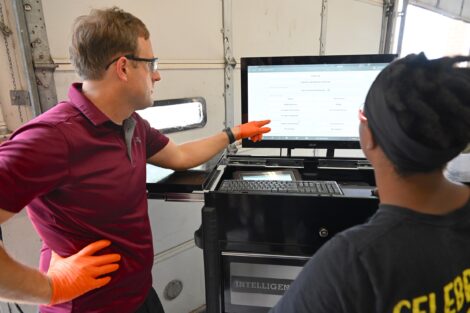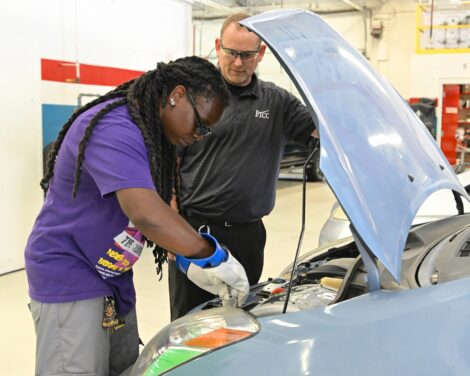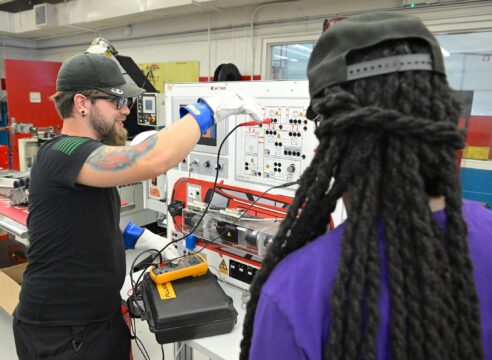
Fayetteville Technical Community College programs demand that students be trained in the latest technology to meet the ever-changing industry landscape.
For students in FTCC’s Automotive Systems Technology program, that means getting plugged into the world of electric vehicle maintenance and repair.
To meet the need for technicians trained in electric vehicle service, FTCC has added a Hybrid-Electric Transportation course to the AST curriculum. The course covers maintenance, diagnostics, repair and safety procedures for electric and hybrid vehicles.
The course was offered for the first time this summer, with two cohorts of students taking the 8-week course four days a week.
“The trend in the industry is to have more and more electric vehicles and hybrids on the road,” said Brian Oldham, Automotive Systems Technology department chair in a press release. “And with more and more electric vehicles, students need to be familiar with these vehicles and how to service them.”
For many of the students, even some with years of experience tinkering with cars, the class is the first exposure to working on electric and hybrid vehicles.

“I’ve been working on cars since I was 12 years old, and what I’m learning now with the electric vehicles is very complicated,” student Tiffany Bethea said in a press release. “The way the world is going now, there’s more electric, so this is for the newer generation.”
Oldham said safety is the primary focus of the class, as the curriculum emphasizes the need for safety procedures and personal protective equipment to handle the high-voltage systems in electric vehicles and hybrids.
“The main focus of what we do is the safety aspect of working on electric vehicles,” he added. “We teach vehicle depowering – basically making the vehicle safe to work on without being electrocuted.
Whenever they’re doing a repair, we’ll teach them how to wear the proper PPE.”
Once students have the safety procedures down, they get the chance to work on several different models of hybrid and fully electric vehicles — some personal vehicles of students and instructors and others borrowed from dealerships.

“I like this program a lot because there’s a lot more hands on, there’s a lot more in depth of understanding,” student Nathan Entriken said in a press release. “You actually get to practice what you are taught instead of here you go read the book, answer some questions, and continue on.”
Tyler Manion, one of the instructors, said he’s seen students go from apprehensive to appreciative as they grow more familiar with the vehicles.
“Once they’ve gone through the class, they become more comfortable, going from almost no knowledge or physical contact with the vehicle to being hands-on,” Manion said. “Seeing how much technology is in these vehicles really impresses them.”

Kristen Botts co-founded the program with her husband, Nathan Botts, who is a Veteran himself. Photos provided by Kristen Botts.An organization helping Veterans live a full life after their service in the U.S. Military wants to connect Veterans and d

Patrick NoblesHuntington Bancshares Incorporated announced on Feb. 2 that it has closed its merger with Cadence Bank, a regional bank headquartered in Houston, Texas and Tupelo, Miss. This strategic partnership accelerates Huntington’s growth in

There is extensive dialogue surrounding Fayetteville as a travel destination or city aimed at recruiting new businesses and new residents. As someone who moved here from out of state, I thought it could be fun to share my personal experience as